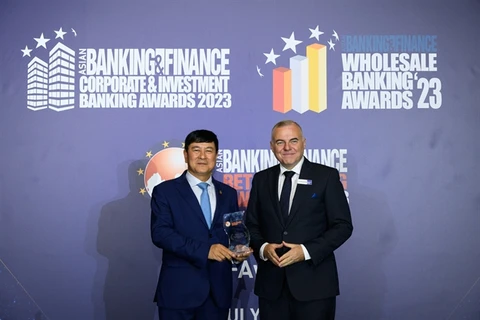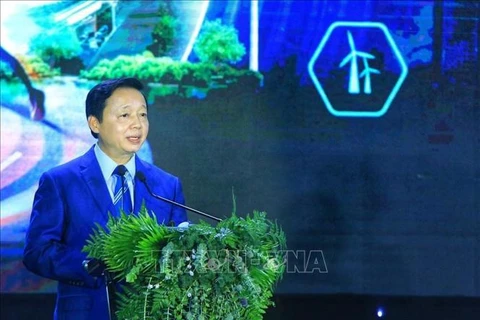 At the workshop “Opportunities and Challenges for the Enterprises and Export Supply Chain of Vietnam” (Photo: VNA)
At the workshop “Opportunities and Challenges for the Enterprises and Export Supply Chain of Vietnam” (Photo: VNA) At the workshop “Opportunities and Challenges for the Enterprises and Export Supply Chain of Vietnam” held in Hanoi on October 17, Anh stressed that although the signed FTAs has granted Vietnamese products an easier access to more than 50 foreign markets, they, especially new-generation trade pacts, contain regulations dedicated to sustainable development that may pose great challenges for exporters.
Together with mechanisms to promote the implementation of FTAs, Vietnam’s major trade partners such as the EU and the US have ramped up efforts to carry out sustainability commitments through their laws on supply chain due diligence, which require their enterprises to strictly control the supply chain, he added.
In a bid to realise the non-traditional commitments, including environment and labour, under the FTAs, Vietnam has been integrating international labour standards into domestic laws and put them into practice, he said.
Meanwhile, Nguyen Thi Minh Thao, head of CIEM’s Research Department on Business Environment and Competitiveness, suggested state management authorities fine-tune institutions in accordance with international laws, better the business climate by ensuring business freedom and safety and reducing compliance costs to improve capacity of domestic firms.
 Vietnamese businesses engaging in the global supply chain should secure compliance with sustainable development standards. (Photo: VNA)
Vietnamese businesses engaging in the global supply chain should secure compliance with sustainable development standards. (Photo: VNA) Attending the workshop, Tim De Meyer, Senior Adviser on Standards Policy in the International Labour Organisation (ILO)’s International Labour Standards Department, said that the ILO commits efforts to ensure welfare for workers and socio-economic vitality, making contributions to sustainable development./.
VNA






















